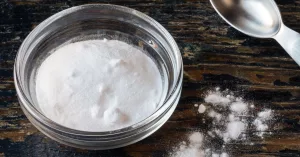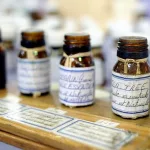Sipping lemon-ginger tea before turning in for the night might enhance mindfulness and support hydration. It could also ease indigestion, relieve nasal blockage, and offer other advantages.
If falling asleep or staying asleep is a challenge for you, you may be searching for gentle ways to improve your rest.
Making an herbal brew, such as lemon-ginger tea, can be a calming nighttime routine that helps you close out the day.

Lemon-ginger tea is exactly what it implies: a mild herbal infusion made from fresh lemon and ginger — optionally sweetened with honey or agave nectar.
You may be curious whether lemon-ginger tea provides specific health perks. While it’s not a sedative, it can help you relax and unwind and may deliver additional benefits.
This piece explores six advantages of having lemon-ginger tea before bed and provides instructions for preparing it.
1. Eases indigestion
If persistent indigestion or a heavy evening meal keeps you awake later than you’d like, a cup of lemon-ginger tea might help before you go to bed.
Ginger (Zingiber officinale) is a root with a long history in traditional and folk remedies for its capacity to ease delayed gastric emptying.
Additionally, lemon (Citrus limon) contains a phytochemical called limonene that supports digestion by aiding the movement of food through your digestive system — potentially reducing that uncomfortable feeling of being overly full.
Although the limonene content in any given cup of lemon-ginger tea will differ, the blend of lemon, ginger, and hot water may soothe indigestion.
2. May reduce nausea
Ginger has been celebrated for its capacity to ease nausea, which many people experience during pregnancy, chemotherapy, and other situations. Evidence suggests that taking about 1 to 1.5 grams of ginger per day can produce an anti-nausea effect.
An earlier review found that ginger prevented and reduced chemotherapy-related nausea in about half of the studies evaluated.
Ginger seems particularly useful for nausea associated with pregnancy, though it appears less effective at fully preventing vomiting.
A lemon-ginger infusion is generally considered safe to consume during pregnancy.
3. May help clear nasal congestion
The steam from a hot lemon-ginger brew can help open nasal passages — aiding airflow. Drinking something warm also soothes a sore throat caused by mucus buildup.
While much of this evidence is anecdotal and rooted in traditional remedies, these effects can be helpful during cold and flu season or when seasonal allergies flare.
Lemon-ginger tea won’t cure these conditions, but it may loosen mucous and make breathing through your nose a bit easier.
4. May ease constipation
Constipation can stem from multiple causes, including inadequate fluid intake and a low-fiber diet.
When constipation is related to dehydration, relaxing with a warm cup of lemon-ginger tea in the evening may help because fluid intake assists stool passage through the intestines.
If you struggle with ongoing constipation, ensure you’re well-hydrated throughout the day as well.
Consult a healthcare provider if you experience:
- difficulty passing stool
- fewer than three bowel movements per week
- blood in your stool
5. May combat inflammation
Gingerol, a bioactive compound found in ginger, exhibits anti-inflammatory and antioxidant characteristics.
Chronic inflammation is associated with conditions such as metabolic syndrome, cancer, Alzheimer’s disease, and cardiovascular disease.
However, research shows inconsistent findings on whether ginger produces anti-inflammatory effects in humans.
It’s also important to recognize that current studies don’t establish how much gingerol is required to obtain these benefits — nor how much you’d actually consume from a standard cup of lemon-ginger tea.
6. Supports hydration
When you drink lemon-ginger tea, you’re consuming water — which contributes to your overall hydration.
This matters because adequate hydration helps essential organs, such as the kidneys, digestive tract, and heart, work properly.
Your daily water needs vary depending on factors like medications, physical activity, and health conditions.
How to make lemon-ginger tea at home
Preparing lemon-ginger tea at home is straightforward — you’re simply infusing hot water with fresh ginger and lemon.
Lemon-ginger tea
Makes one serving
Ingredients- 1-inch (2.5-cm) piece of fresh ginger root, peeled
- 1/2 lemon, quartered and 1 fresh wedge for garnish
- 1 cup (237 mL) of water
- honey or agave nectar, to taste
- Place the ginger and lemon in a small saucepan with water and let it simmer on the stove. Allow it to steep for at least 10 to 15 minutes.
- If the infusion seems weak, try grating the ginger or cutting it into smaller pieces. You can also add some lemon zest for a stronger citrus flavor.
- Sweeten with honey or agave nectar if desired. Garnish with a fresh lemon wedge.
You can also prepare a larger quantity and keep it refrigerated to reheat as needed. Simply scale the recipe to make several days’ worth.
The bottom line
A lemon and ginger infusion may soothe mild stomach discomfort, help relieve a blocked nose, and lessen or prevent nausea.
Moreover, the ritual of drinking lemon-ginger tea can promote relaxation and serve as a helpful practice for mindfulness.

























Leave a Reply
You must be logged in to post a comment.